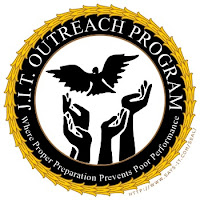Programming
The U.S. Supreme Court has never expressly ruled on the right to treatment for juveniles, and lower court cases have ruled ambiguously on this issue. The Court has recognized a right to treatment for mentally retarded adults who, like children, are confined for treatment without their consent (see Youngberg v. Romeo). In addition, a number of courts have found a right to treatment in juvenile institutional cases. In Alexander S. v. Boyd, the court found a constitutional right to a minimally adequate level of programming designed to teach juveniles the principles essential to correct their behavior.
Exercise and Recreation
Inmates are constitutionally entitled to fresh air and regular exercise (see Spain v. Procunier). In adult prisons, restriction to two 1-hour exercise periods per week has been held to violate the eighth amendment (see Sweet v. South Carolina and Spain v. Procunier). Where there is substantial access to indoor recreation areas, up to 18 hours per day, according to Clay v. Miller, there may be a finding of no violation, but such substantial alternatives often do not exist. Where the adult inmate is in disciplinary segregation, the institution must still explore ways to provide regular exercise and may restrict it only in exceptional circumstances (see Mitchell v. Rice).
Education/Special Education
The courts have made it clear that children in correctional facilities are entitled to the benefit of special education laws under Green v. Johnson and Donnell C. v. Illinois State Board of Education. Children eligible for special education are entitled to a broad range of assessment,
evaluation, educational, and related services under the Individuals With Disabilities Education Act. Federal time lines for assessment and implementation apply, even when the child is in temporary detention (see U.S. Office of Civil Rights, Solano County Juvenile Hall, California, Case No. 09–89–1227 and Nick O. v. Terhune). Institutions confining children must also refrain from discriminating against educationally handicapped children under the Rehabilitation Act of 1973.
Religion
Facilities housing children or adult inmates must accommodate religious observances. The traditional view was that religious practices must be allowed provided they did not jeopardize the security of the institution (see Cruz v. Beto). In recent years, the Court has taken a narrower view, holding that limitations on the exercise of religion are permissible if
they are related to a legitimate penological objective (see O’Lone v. Estate of Shabazz). However, the Religious Freedom Restoration Act of 1993 appears to restore a higher standard of legal scrutiny. The government must show a “compelling interest” before impinging on religious practices and use the least restrictive means of regulation.
Work
Children may be required to clean their cells or living areas but cannot be forced to do chores for the personal benefit of staff or be exploited for their labor. Limited case law specifically relates to children on this issue, but the legal theory is clear. People who have not been convicted of a crime may not be punished under the due process principles articulated in Bell v. Wolfish. By analogy to the forced labor cases involving mentally ill patients, Johnson v. Cicone and Tyler v. Harris found that inappropriate work requirements may violate the 13th amendment or provisions of the federal Fair Labor Standards Act (see Weidenfeller v. Kidulis, Souder v. Brennan, Wyatt v. Stickney, and Wyatt v. Aderholt).


No comments:
Post a Comment
Thank You!! Your comment has been submitted!!